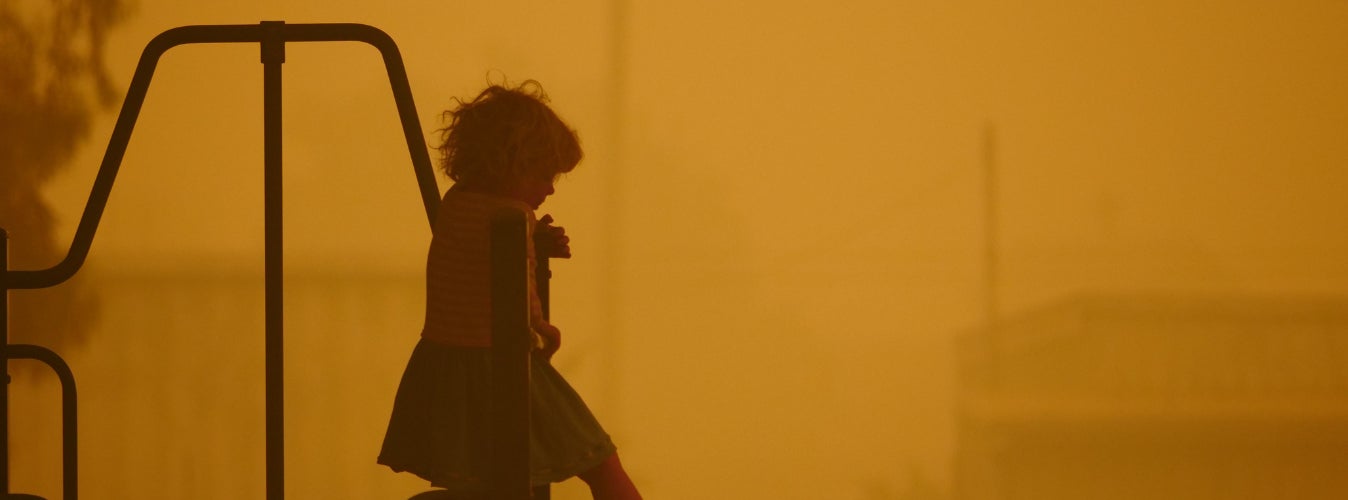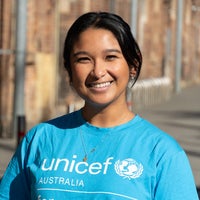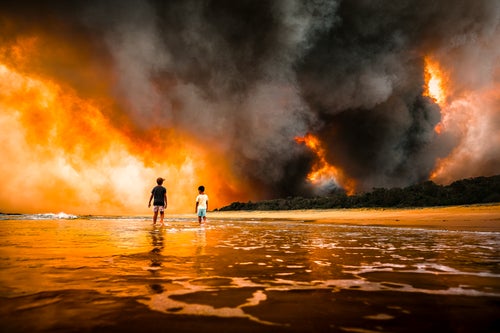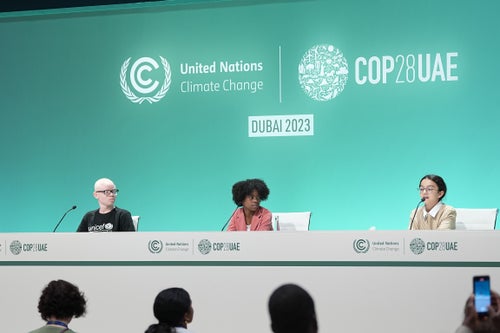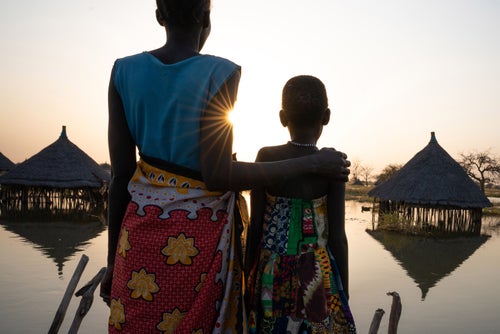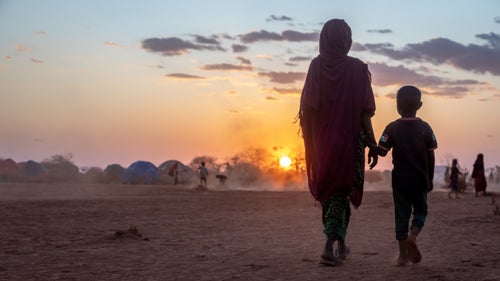In countries all over the world, climate-related disasters are wreaking havoc on homes, destroying schools and playgrounds, and forcing children and young people to experience crises beyond their control.
Over the last few years in Australia, children and families were impacted by more frequent and intense climate disasters, from devastating bushfires to catastrophic flooding. These disasters are changing childhood as we know it.
Over 15,000 homes
were damaged in the 2022 floods
2 in 5 children
were personally impacted by 2019/2020 bushfires
By 2050, with a projected 2.4 degrees of warming, UNICEF estimates that:
- Every child in Australia will be subject to more than 4.5 heatwaves a year
- Up to 2.2m Australian children could be living in areas where heatwaves will last longer than 4.7 days
- 10% of Australian children could be living in areas where severe heatwave events will occur
These projections are terrifying, but UNICEF Australia is committed to protecting and preparing children all around the country in the face of the climate crisis. Find out three ways we’re taking climate action.
1. Building climate resilience
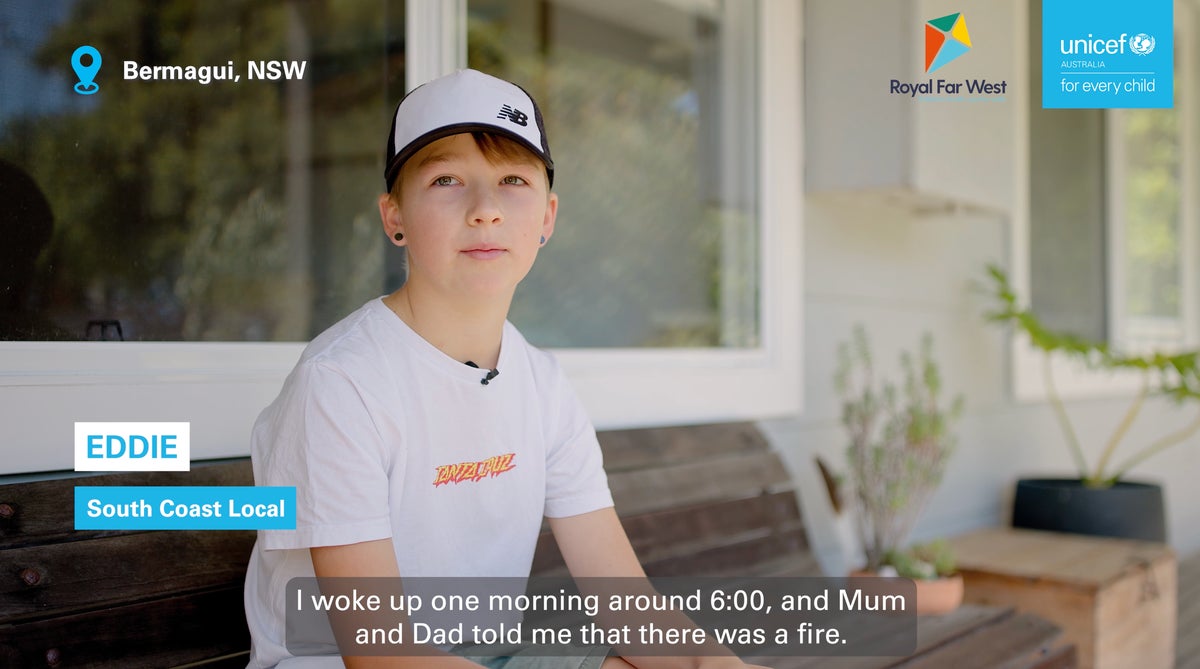
"Children are at the forefront of climate change."
In 2020, devastating bushfires tore through parts of southern New South Wales, impacting children and families. Not long after, communities in the Northern Rivers were ravaged by floods, with many homes destroyed.
In response to these catastrophic events, UNICEF Australia and Royal Far West developed a powerful partnership to ensure that impacted children and families receive psychosocial and learning support they need following a flood or bushfire disaster.
"I was very anxious in general, just if the fire got into Bermagui and hurt anyone, or got rid of the house. To deal with my anxiety, Royal Far West and I did a couple of different techniques to calm myself down, like breathing - it helped a lot."
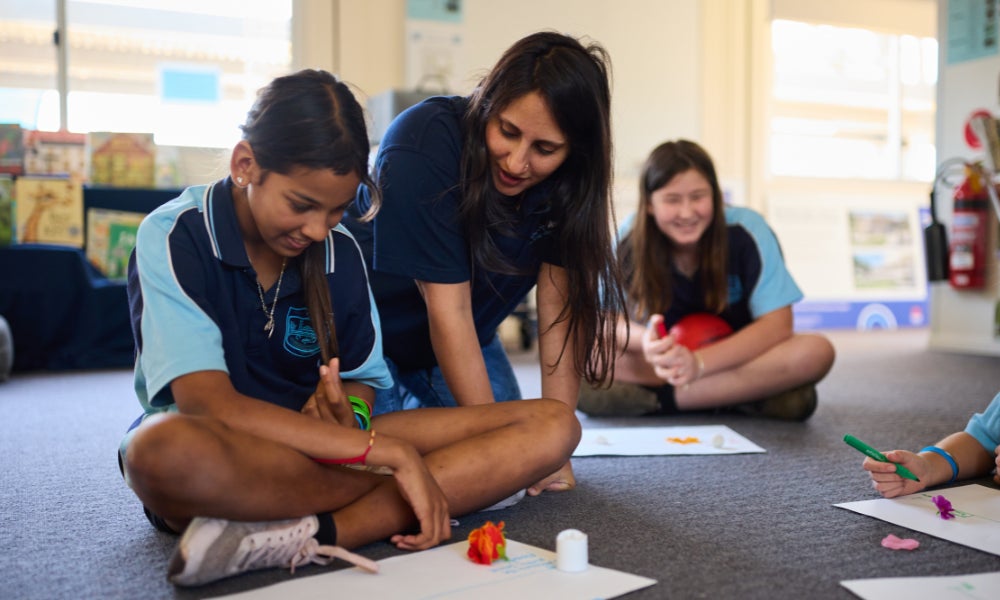
Together, UNICEF Australia and Royal Far West have advocated (at the national and state levels) to strengthen emergency response systems and help ensure that these become more sensitive to children’s needs, as well as drive government investment in recovery programs.
2. Being at the forefront of climate action
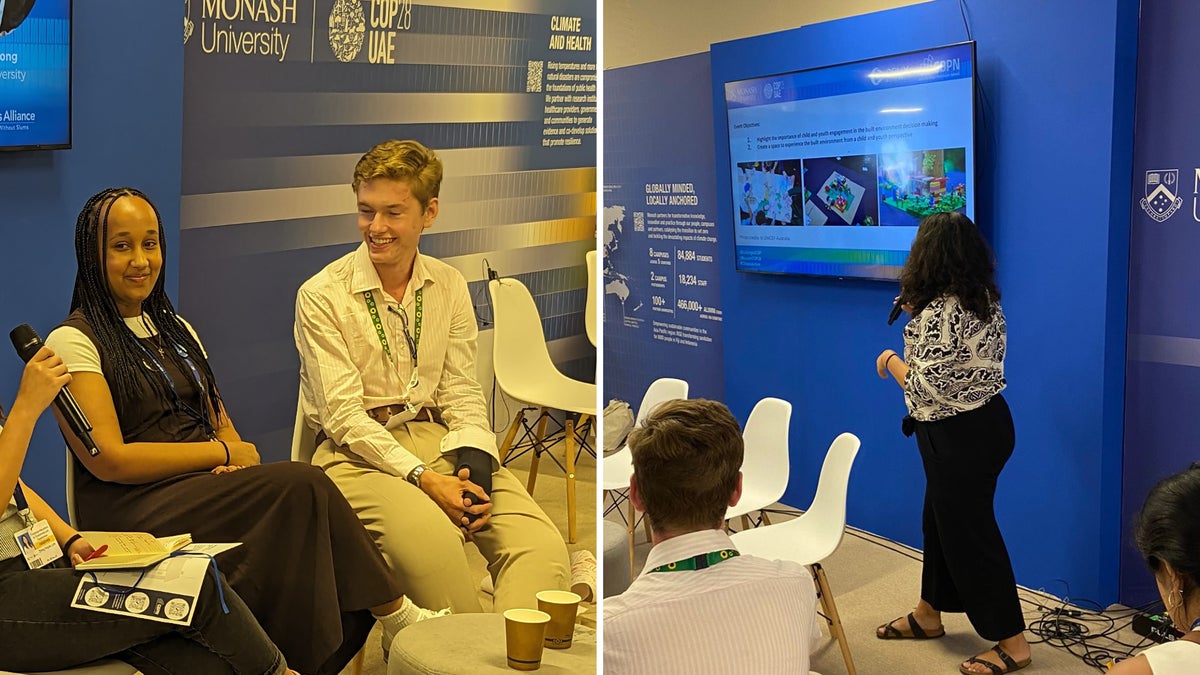
When big decisions are being made on issues that impact children, UNICEF Australia is there. From lobbying the government in Canberra to advocating for change in rural communities, our commitment to children’s rights means we will go to any length to participate in meaningful conversation and action.
In December 2023, governments, environmentalists, and activists gathered at COP28, the world's biggest and most important annual climate event. UNICEF's focus is to ensure that children's voices are included and heard, and that they are protected from the impacts of climate change.
Our UNICEF Australia delegation delivered critical insight to the Australian Government, both ahead of the Conference and during the negotiations, and spoke on a number of panels during the conference. UNICEF is working with more than 100 child and youth climate activists at COP28, including two of Australia’s Young Ambassadors, to raise their voices and ensure that child rights are considered at every point.
3. Listening to young voices
At our heart is a promise to listen to young voices and hear what they say. The climate crisis is a child rights crisis, and it’s only fair that we listen to young voices on building better futures together.
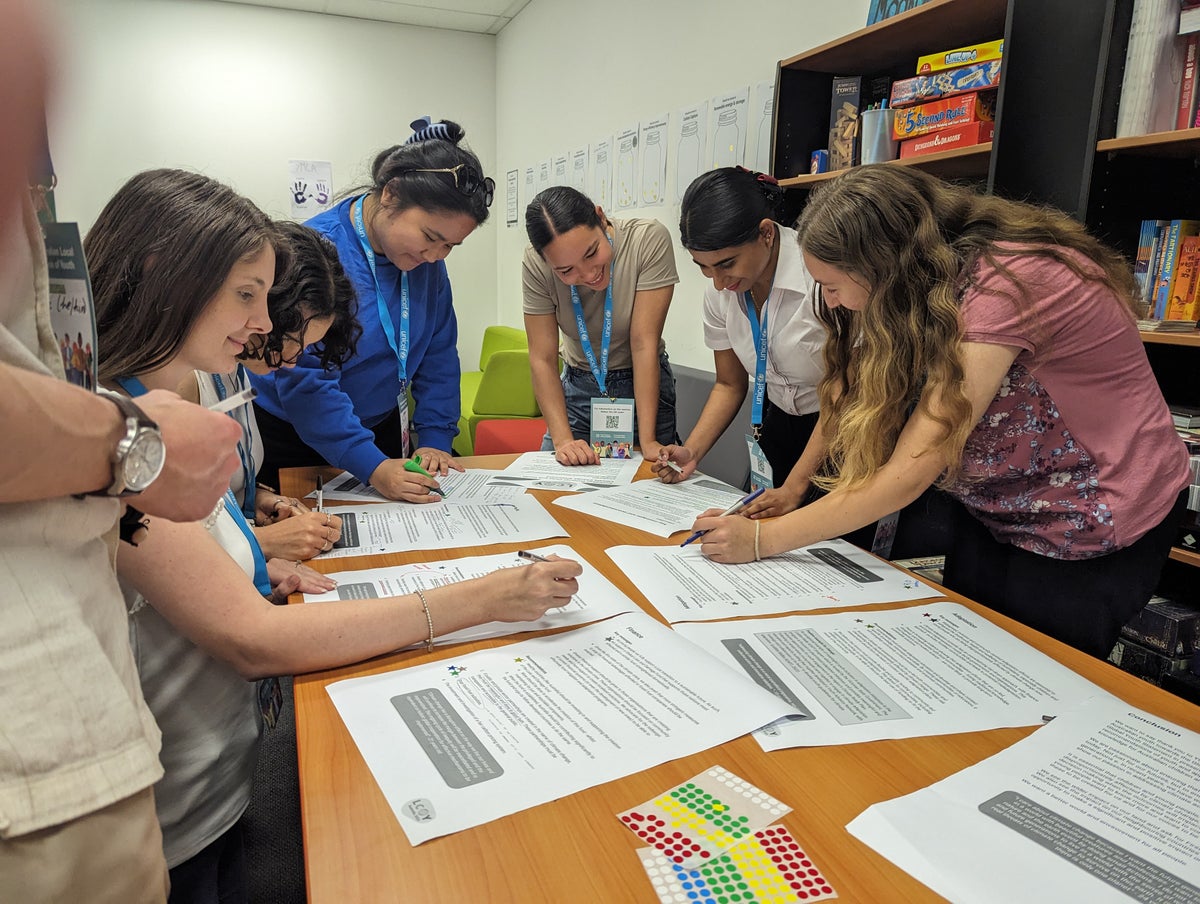
Supported by UNICEF Australia and Monash Sustainable Development Institute (MSDI), the ‘Local Conference of Youth Australia 2023 (LCOY Australia)’ brought together youth climate leaders and advocates around Australia.
Together, these young, inspiring individuals developed the National Child and Youth Statement on climate change, which summarises their opinions, perspectives, realities and lists of actions they see as necessary for achieving a just and sustainable future for all.
This Statement was presented to Ministers and key Parliamentarians in Canberra in late November 2023 and was submitted to the Conference of Youth ahead of COP28 to be included in the Global Youth Statement.
"It has never been more important for young Australians to feel heard on the impact of a changing climate. Young people carry the greatest burden in years to come but are the least responsible for the situation."
A child rights crisis
One billion children around the world, including Australia, are at extremely high risk of the impacts of climate change. This is threatening their health, nutrition, education and childhood.
In Australia and around the world, UNICEF is working to protect children from the effects of climate change while helping communities build towards a more sustainable future. But only with your support can we continue taking action against climate change and give future generations a sustainable future, no matter who or where they are.
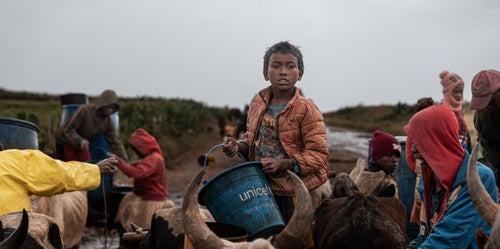
Climate Emergency
Climate is the biggest threat facing the world's children today. Protect them in a changing climate by donating today.
Related articles
Stay up-to-date on UNICEF's work in Australia and around the world



